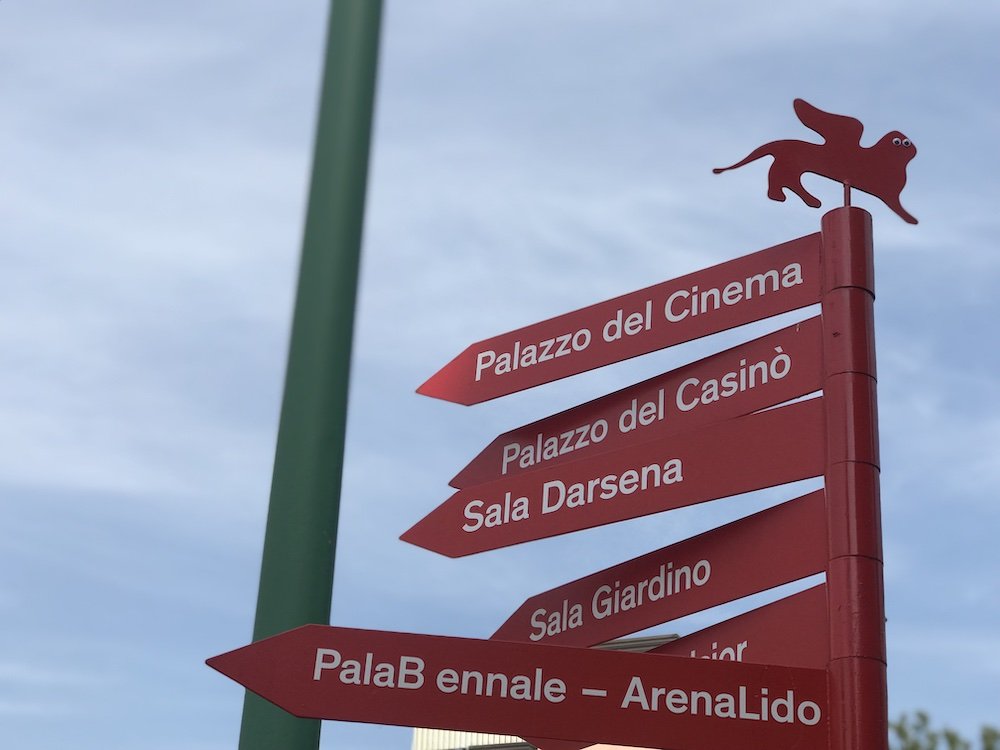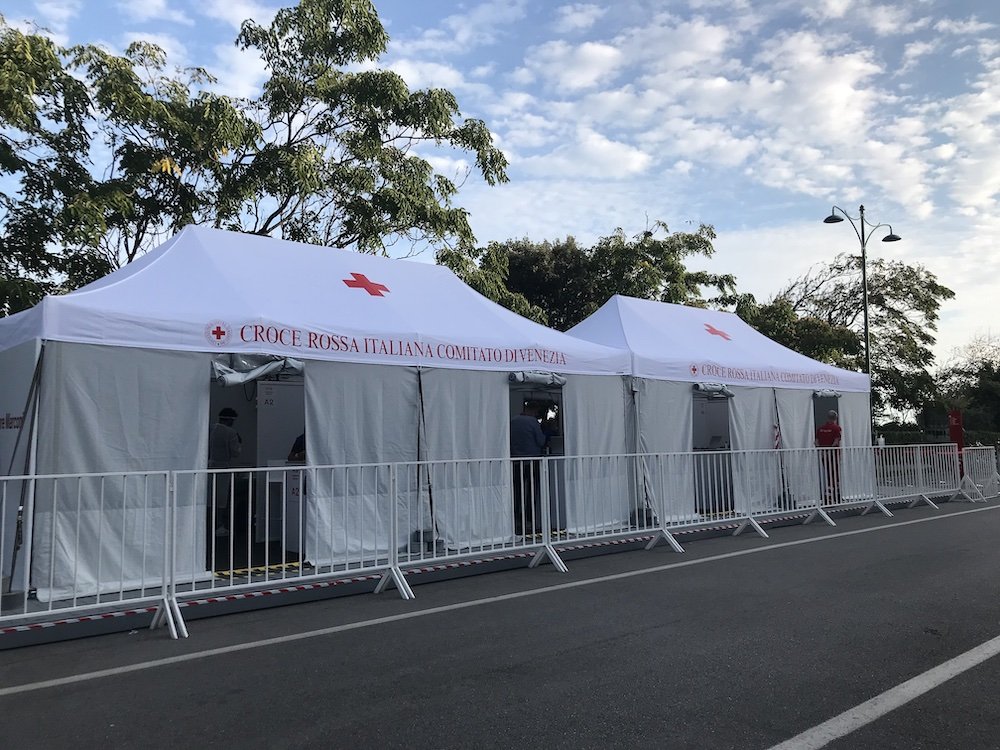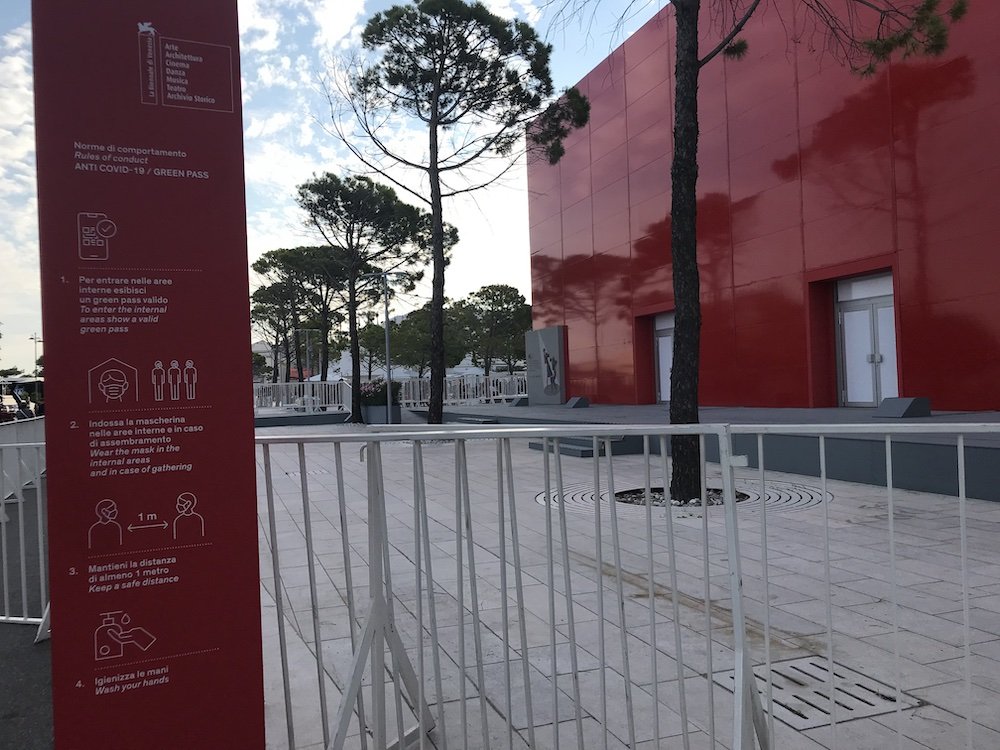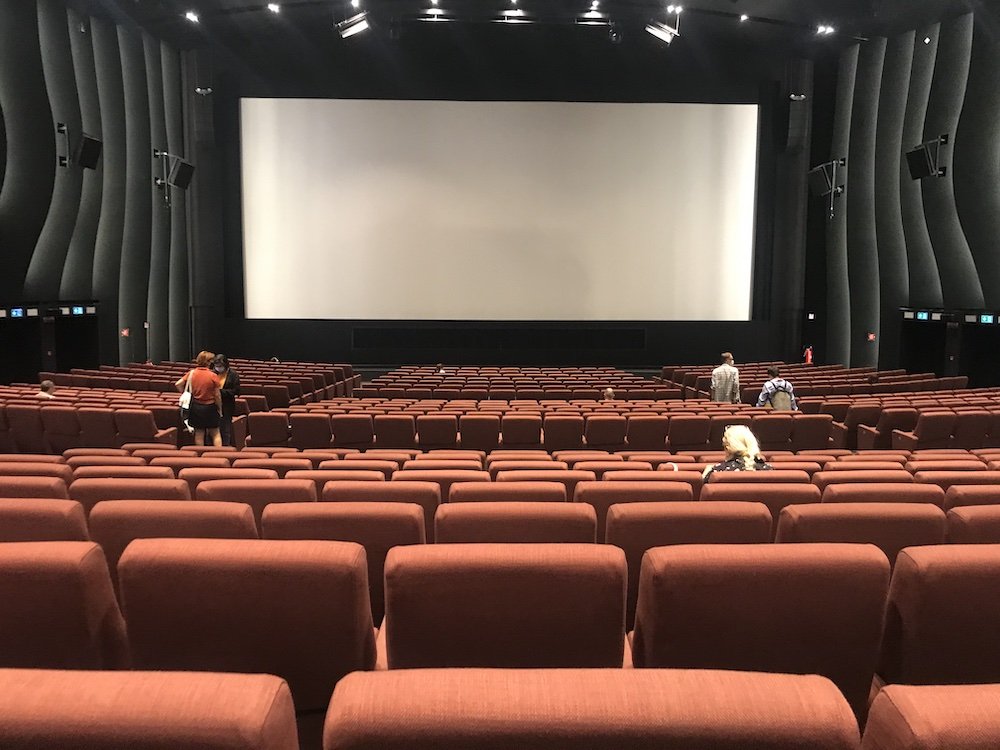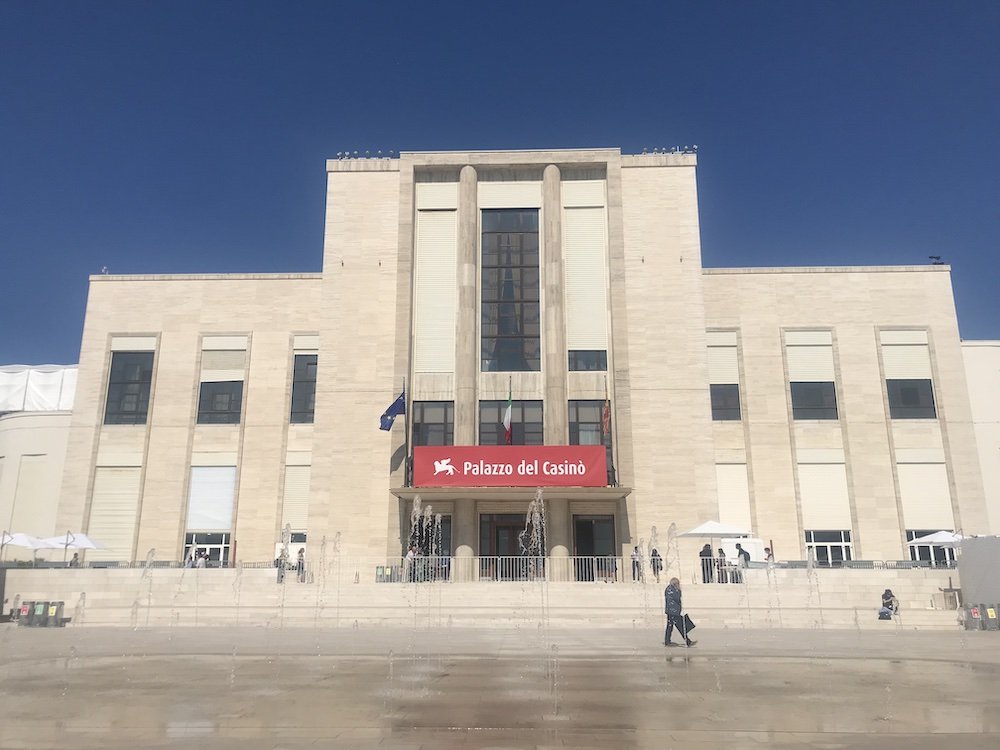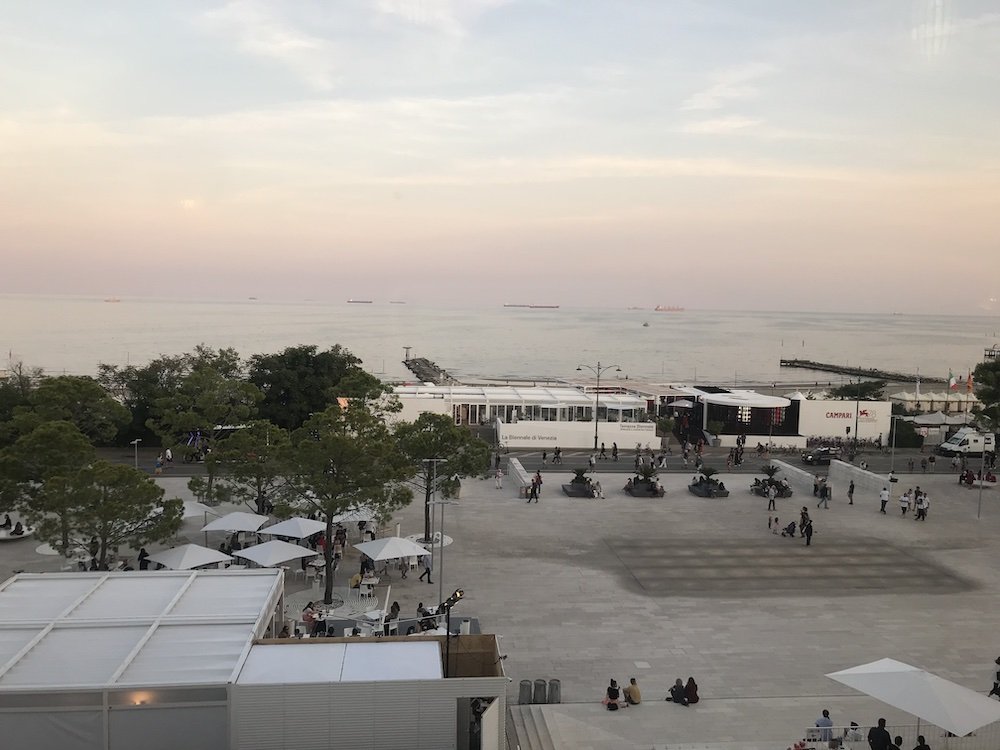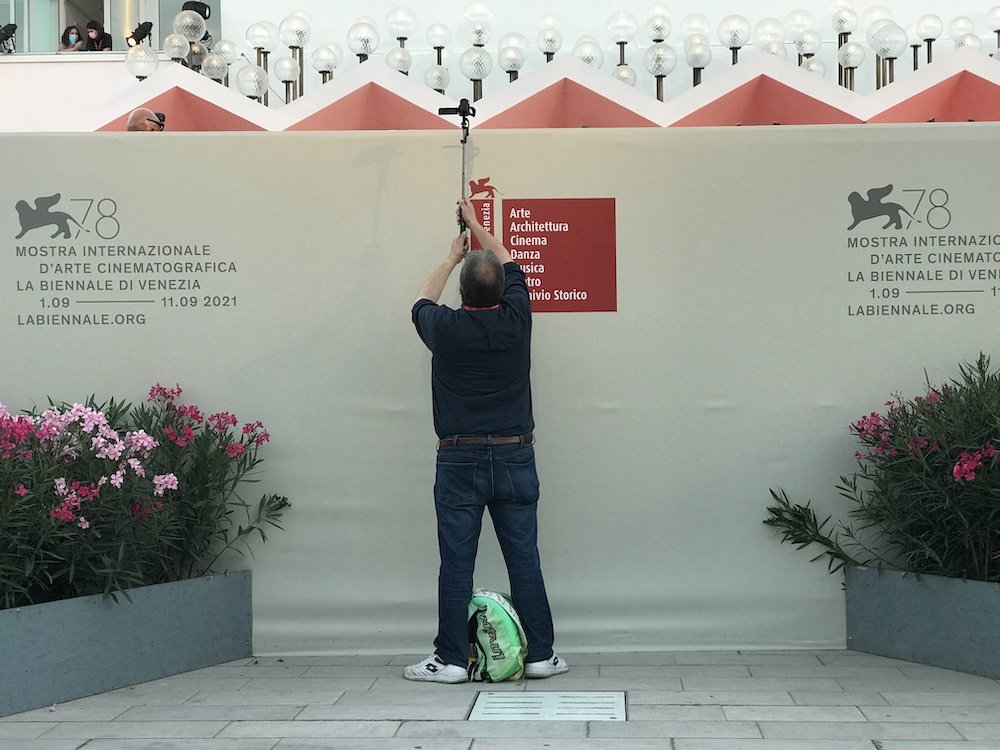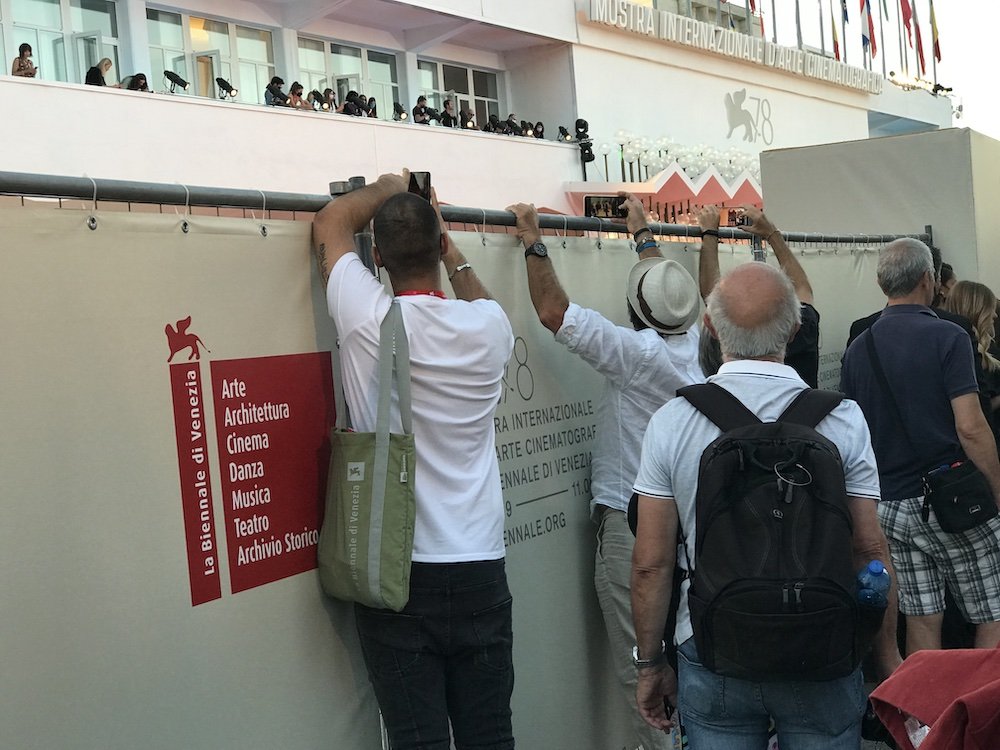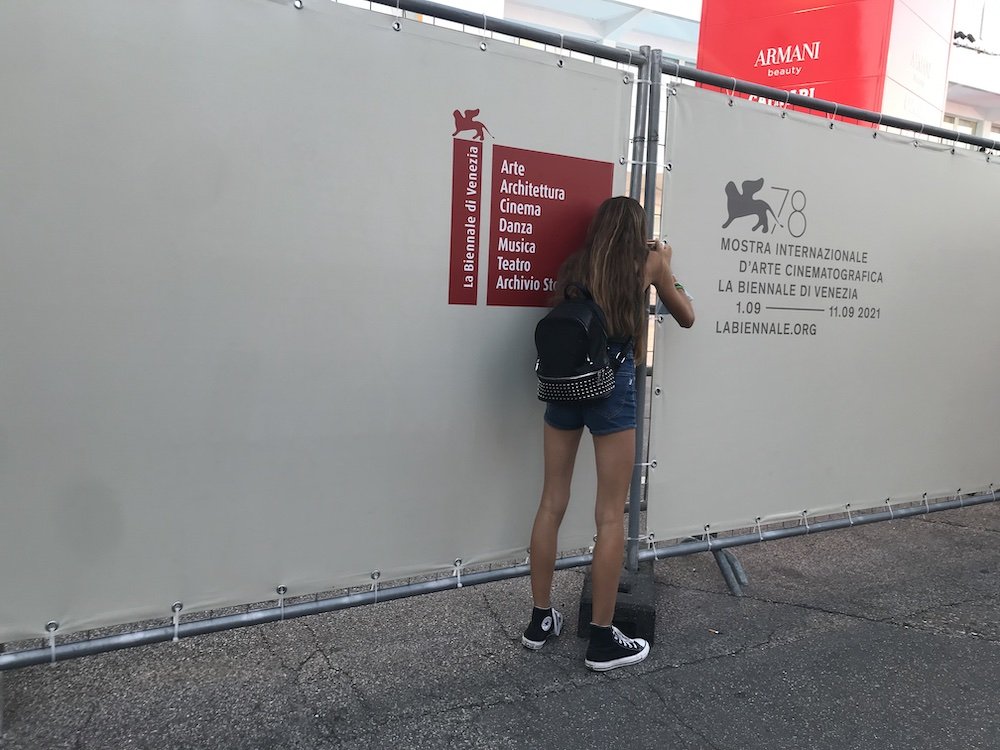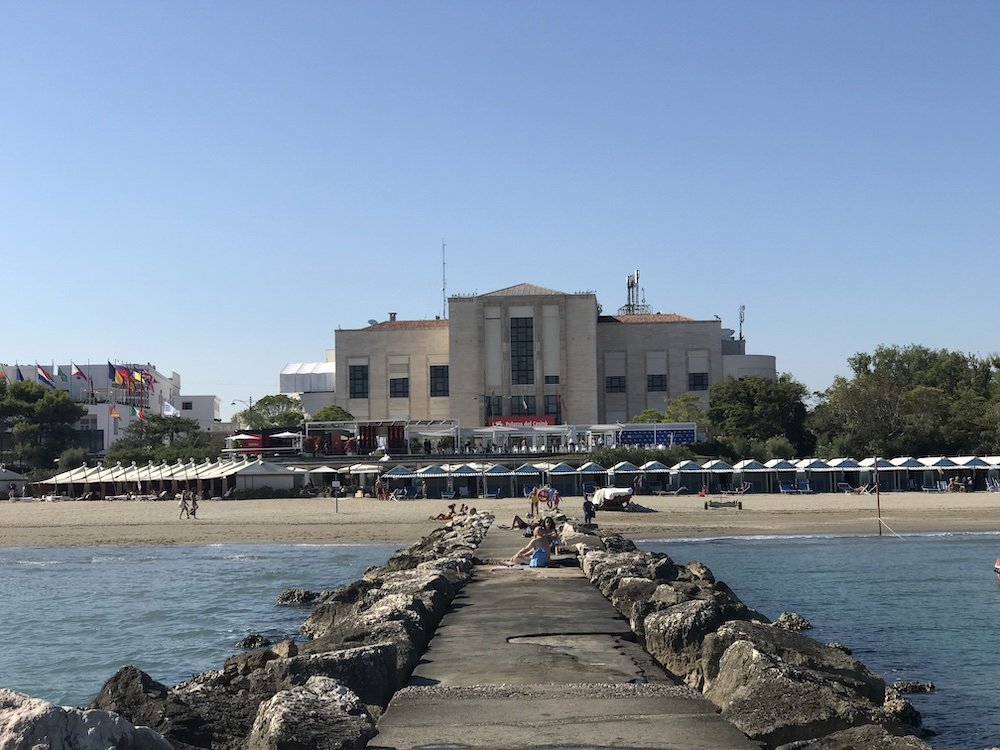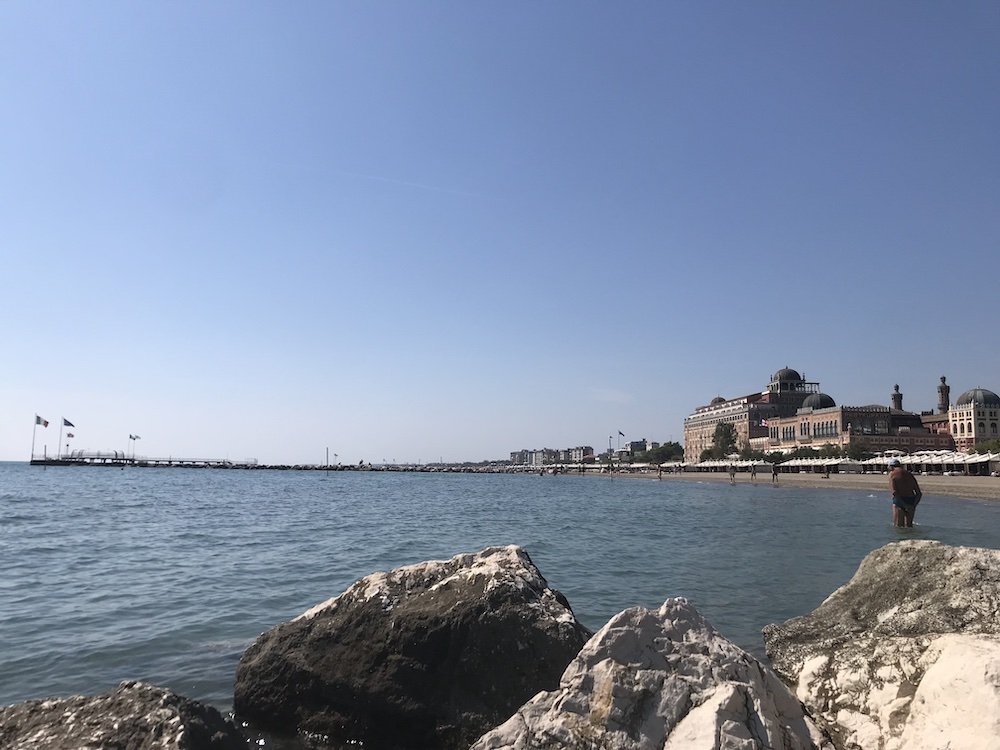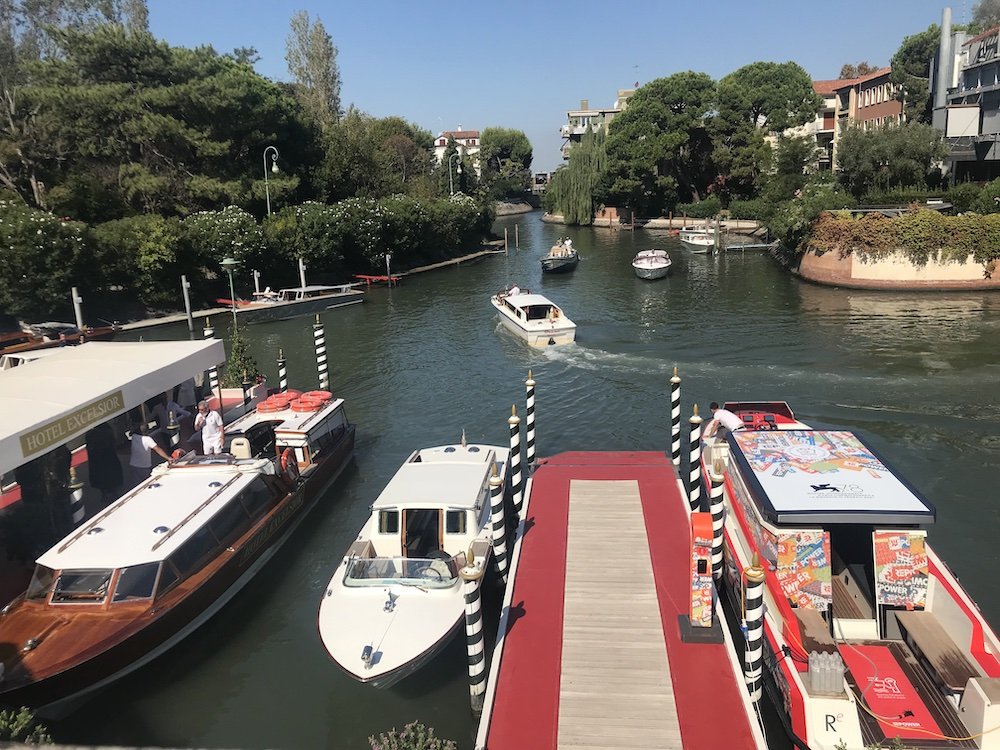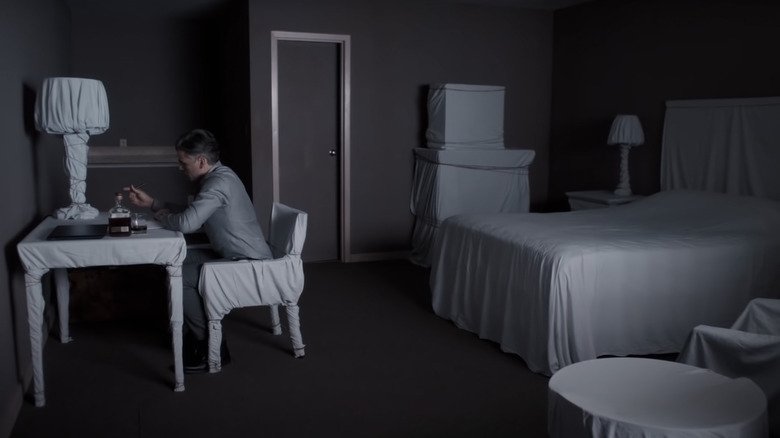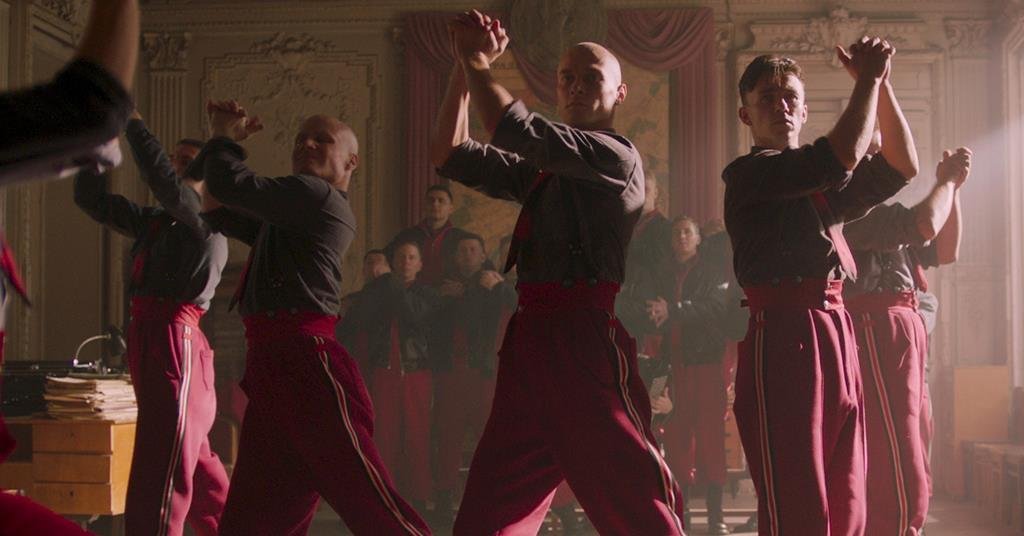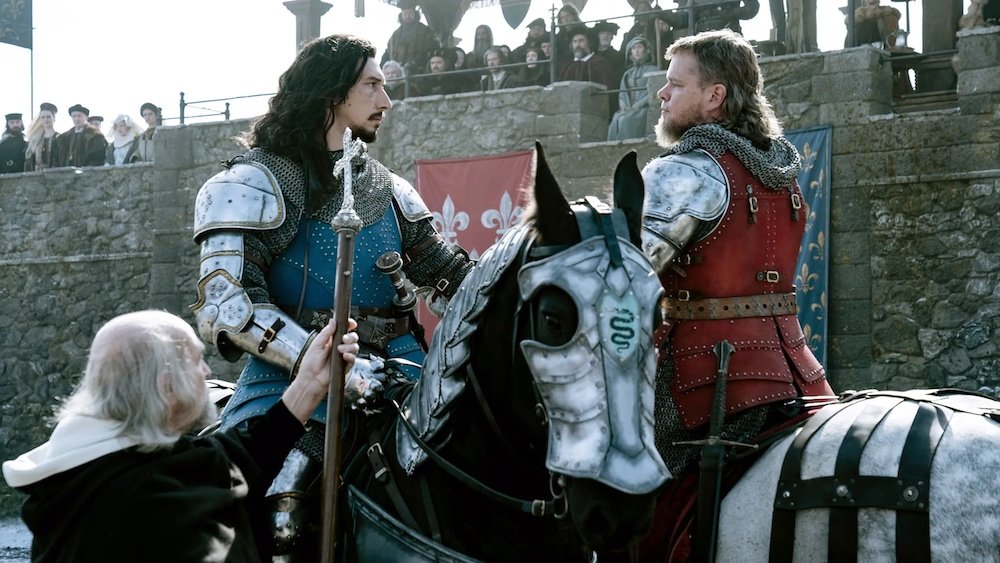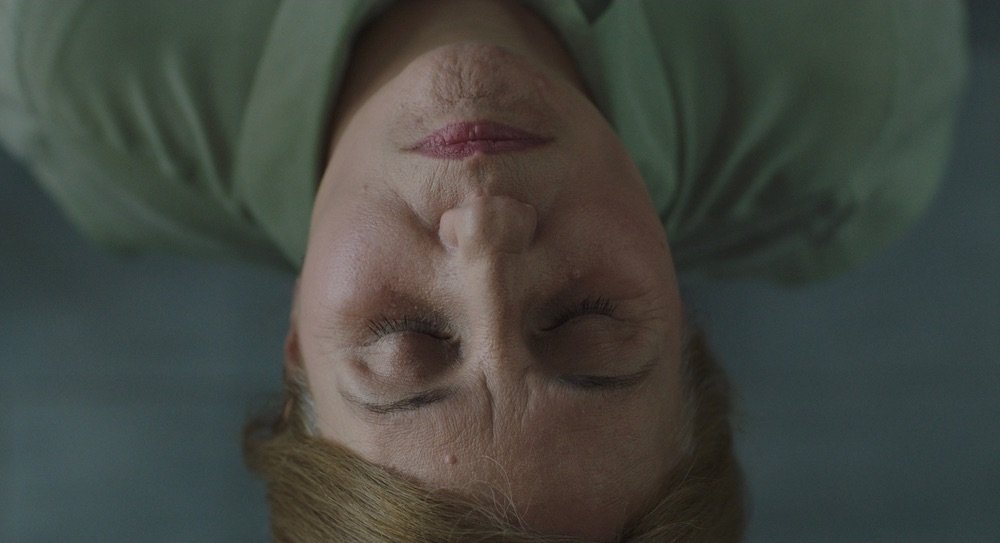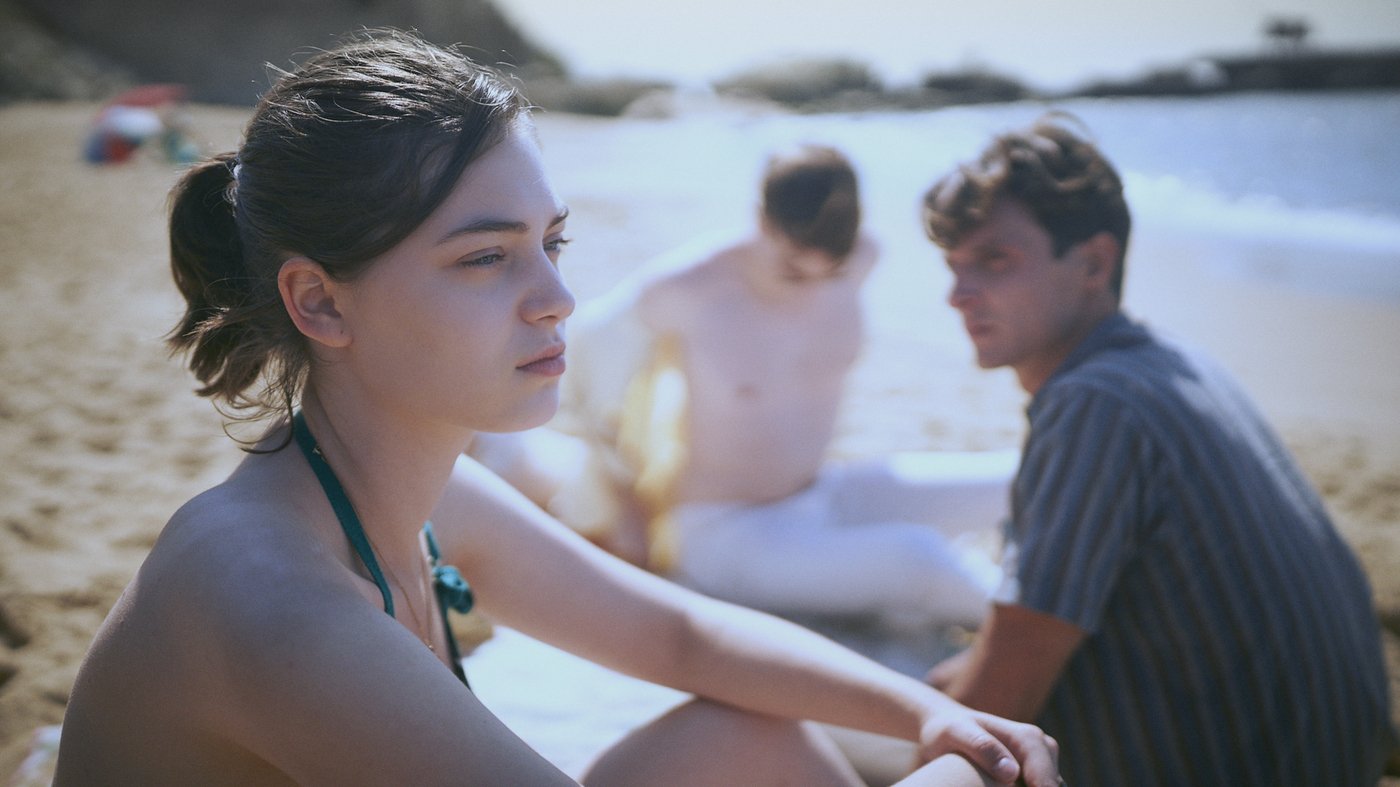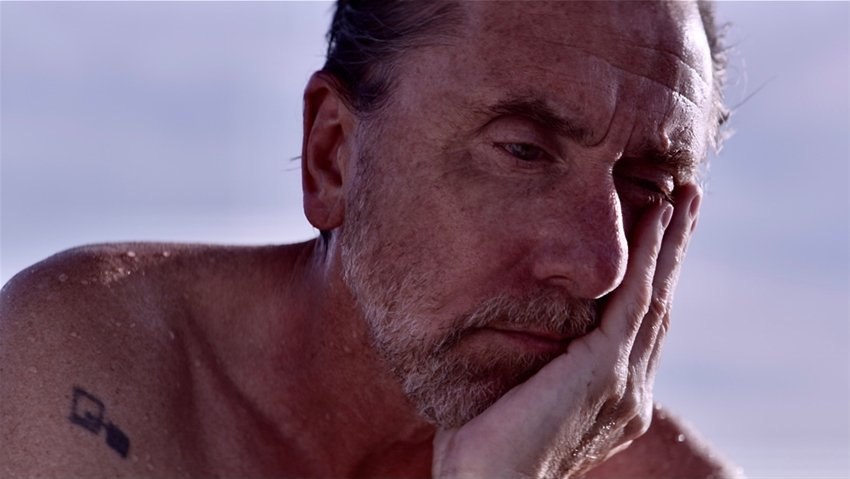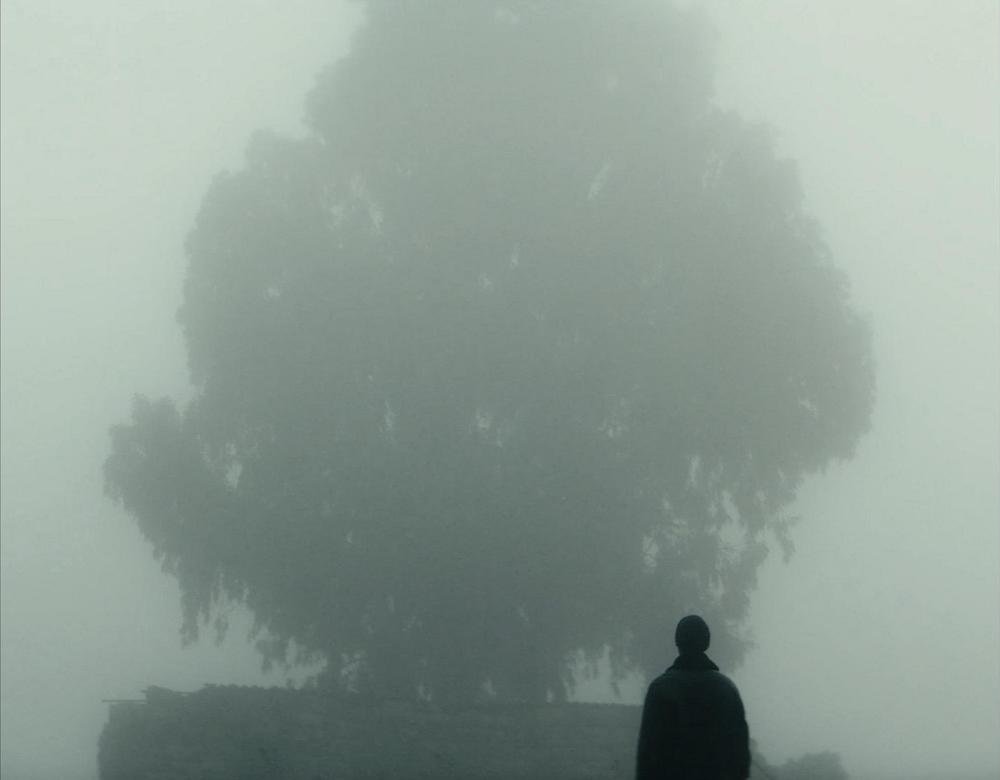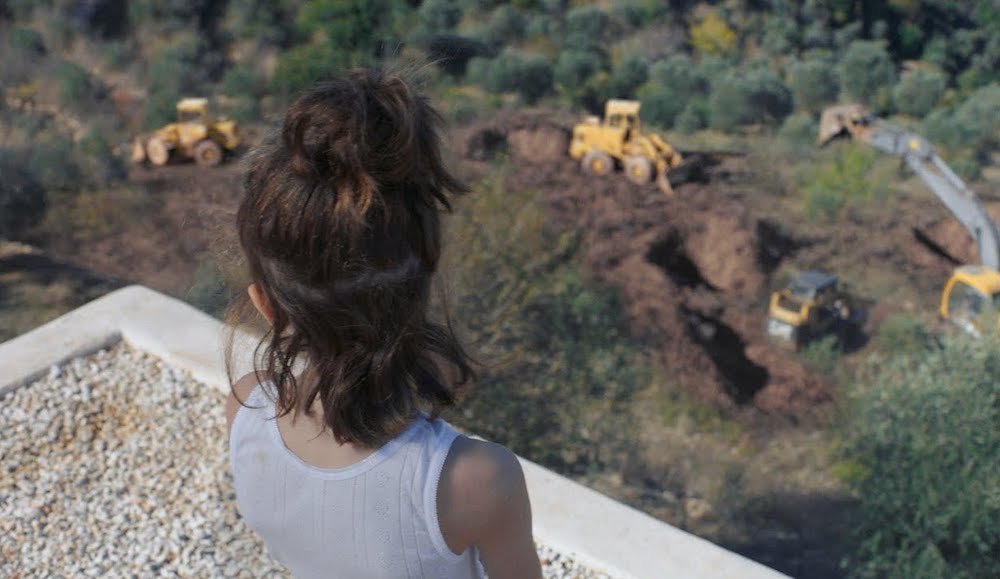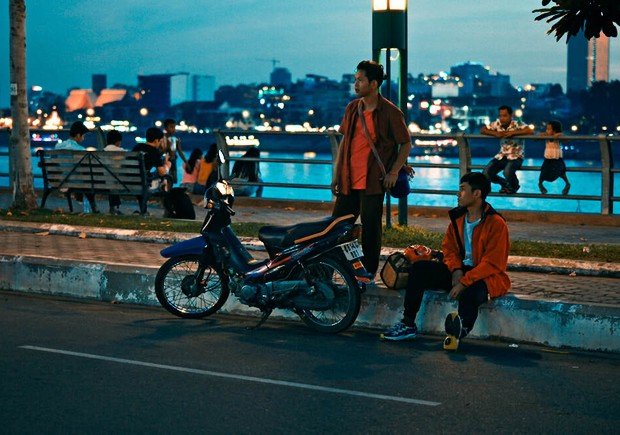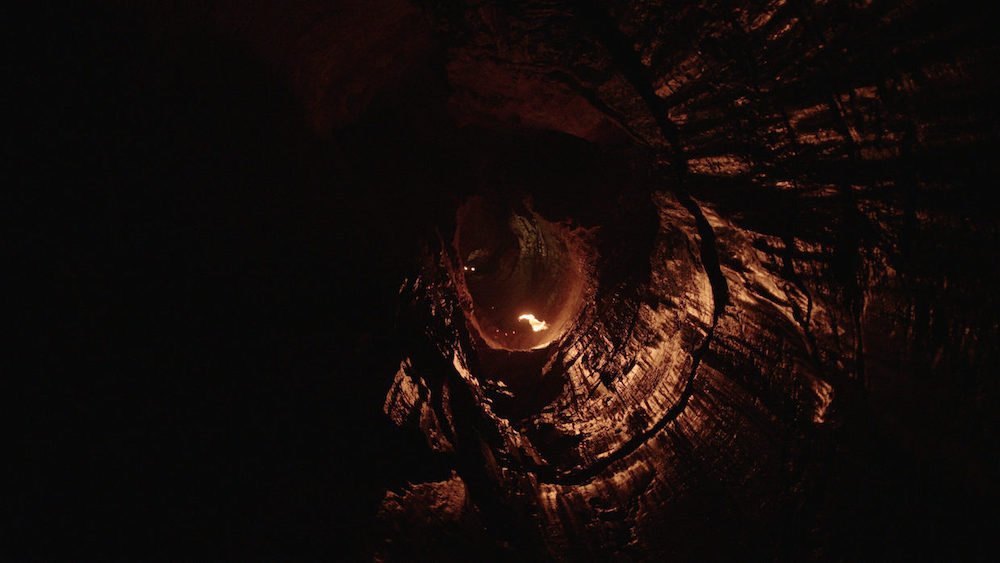Biennale Cinema 2021 - Roundup of the 78th Venice International Film Festival
The first few days of the Venice International Film Festival felt like being at an art fair. I’ve been to Venice twice before, but this was my first time at the film festival and Lido island where most of it is held.
The white coloured tents and seating areas, sponsored logos of luxury brands, loud music from the lounge areas or the red carpet, the limited choice of (mostly not very good) food - all of this reminded me of art fairs I’ve attended in the past.
It took me a couple of days to find my bearings and realising the beauty of the festival is that it’s on an island, to be able to swim or spend time at the beach between films was what won me over. It felt like a perfect end of summer trip.
Yes there’s the red carpet frenzy, the fashion, filmmakers, actors and celebrities promoting their films, and sometimes fashion brands they’re wearing, and at times, a rebranding of place.
Seeing a sponsored ad on the cover of Screendaily magazine dotted all over the festival grounds of Saudi Arabia’s Red Sea International Film Festival’s slogan “Waves of Change” featuring two young hipster Khaleejis was both amusing and exasperating. Amusing because of the paid for attention and acceptance, exasperating because of the use of hip looking young women to represent “change”.
Whilst the glamourous aspects of the film festival and the films touted for upcoming awards season gets most attention in the press and social media, there’s a lot to discover and appreciate amidst the festival commotion.
I’ll start by commending the festival for providing free COVID-19 rapid test facilities around the main festival grounds, the mandatory face mask rules, and the the mandatory pre-booking of seats for accredited attendees (even though the booking for each film was only available 74h before each screening, which meant spending more hours than I would’ve wanted online). Being able to book a seat in advance means no longer having to wait in long queues before watching a film. I hope more film festivals follow this approach, it just means the time spent waiting in line can be put to better use.
I missed the first few days of the festival, which meant I missed the opening film, Pedro Almodovar’s Parallel Mothers, and other highly anticipated films like Jane Campion’s The Power of the Dog, Pablo Larrain’s Spencer and Maggie Gyllenhaal’s The Lost Daughter.
But I was glad I was there for Paul Schrader’s The Card Counter (Paul Schrader). William Tell (Oscar Isaacs) is a man that follows a simple routine. He travels across America to play poker, lives in motel rooms where he covers all the furniture with white sheets, he also writes. A minimalist man with a dark past. But this isn’t a film about gambling or poker games, but about prison tortures in Iraq by the American military, its scapegoats and its after-effects. It pairs well with Schrader’s previous film First Reformed.
Captain Volkonogov Escaped (Natalya Merkulova, Alexey Chupov) is another film about men forced to take orders from higher up. Set in the USSR in 1938 amidst a wave of poilitical persecutions, paranoia and loyalty, Captain Fedor Volkonogov (Yuriy Borisov) is part of the law enforcement system that is the National Security Service who one day decides to escape looking for redemption. Grim and devastating.
Ridley Scott’s The Last Duel (Ridley Scott) made me miss epic period films we don’t often get to see these days, and I am curious to see how people will react to it once it’s more widely available. Set in 14th century France and based on true events, it also very much relevant to the #MeToo movement of the present. “The accusation is false. Of course, she made the customary protest, but she is a lady. It was not against her will.” A film told in three chapters, from three different perspectives or truths - The truth according to Jean de Carrouges (Matt Damon), The truth according to Jacques Le Gris (Adam Driver), and The truth according to Marguerite de Carrouges (Jodie Comer), each chapter written by Matt Damon, Ben Affleck, and Nicole Holofcener. The film also addresses rivalry and incompetence amongst men, and Ben Affleck’s Pierre d'Alençon was quite amusing to watch, and deserves a chapter or maybe even a film on his own.
Two other films about the patriarchy Vera Dreams of the Sea (Kaltrina Krasniqi), set in present day Kosovo, Vera (Teuta Ajdini), a middle-aged interpreter for the deaf has to deal with the after-math of the suicide of her renowned judge husband, including warding off claims of ownership of their family home in the village. Dealing with male dominated political instutions and corruption to find the truth, it ends on an unexpected empowering note.
L’événement / Happening (Audrey Diwan) is set in 1960s France when abortion was still illegal, and an adaptation of Annie Ernaux’s memoir by the same name. Anne (Anamaria Vartolomei) is faced with life changing circumstances and is trying to control her fate. In an age where women are expected to settle for domesticity, Anne wants to pursue a different future, to have to make that choice freely.
Her pregnancy from a one night stand means Anne doesn’t have much of a choice, and pursuing options or solutions where abortion can lead to imprisonment made this film feel like an intense thriller rather than a nostalgic melodrama. When one of the male doctors offers Anne her drugs to make her think it will weaken the pregnancy, but instead it was designed to strengthen her embryo was especially chilling and a reminder of how lonely and desperate situations like this have been and continue to be for many women.
The film won Golden Lion for Best Film (second consecutive year a film directed by a woman to win after last year’s Chloe Zhao's Nomadland), and a few days after the news about abortion ban in Texas.
Michel Franco’s Sundown is about rich people. A family vacation in Acapulco is met with violence. Neil (Tim Roth) decides to stay back whilst the rest of the family go back to Britain. The film slowly unravels his state of mind, why he stays back, relationships and tensions between rich foreigners and poor citizens.
Another film focusing on a male character study is Al Garib / The Stranger by Ameer Fakher. Set in Israeli occupied Golan Heights in Syria, a beautiful foggy landscape concealing its violent history and the trapped status of the people living there. Adnan (Ashraf Barhoum) an unlicensed doctor has been disinherited by his father (Mohammed Bakri), a disappointment to people around him, and is going through an existential crisis. A reflection of the state of limbo and alienation in a place with limited options and opportunities. A wounded soldier, friend or foe, appears giving new purpose to Adnan.
Mounia Akl’s Costa Brava, Lebanon is about a family living off the grid leaving behind them a Beirut that has become difficult to live in. Pollution, corruption and activism fatigue drove the family to the mountains eight years ago. But when the city’s trash suddenly turns up on their front yard disposed in a new landfill dug out by the government, the family members experience a shift in their idealised way of life.
In real life, the situation in Beirut looks bleak with one crisis following the next during the past few years - the garbage crisis, the financial crisis, corrupt politicians, protests on the streets, COVID-19, the explosion at Port of Beirut. Whilst it’s hard not to sympathise with a family that choose to live off the grid under these circumstances, there is a hollowness to the film, which felt more skewed towards lifestyle choices rather than a political critique or resistance.
Kavich Neang’s White Building is another film about a family moving out of the city, but in this case, not by choice. This Cambodian film is about capitalism and gentrification. Whilst Samnang (Piseth Chhun) and his friends dream of winning a dance competition for fame and fortune, his parents and neighbours are faced with eviction from an apartment complex in Phnom Penh with no other affordable living options, apart from moving to the ancestral village, away from a place they thought of as home. A melancholic film about growing up, giving up dreams, and hopes for a better future.
Kavich Neang’s statement on the film festival’s website, “Like my parents’ generation, which suffered through Cambodia’s troubled past, my generation now carries the traumas of the present.”
Michelangelo Frammartino’s Il Buco is a film about a 700 metre deep sinkhole, the Bifurto Abyss in Italy’s Calabrian region. The bottom of this sinkhole was reached for the first time in the 1960s, when Europe’s highest building, the Pirelli skyscraper, was being constructed in Milan, of which we see news footage in the film. We see a re-enactment of this expedition featuring professional cave divers. A film that is best experienced on a big screen in a dark room, I was mesmerised by the fire lit cave walls. An exploration of a deep dark abyss, geology, time and impermanence.
A list of all the films I watched at the festival:
COMPETITION
America Latina (Damiano D’Innocenzo, Fabio D’Innocenzo)
The Card Counter (Paul Schrader)
Captain Volkonogov Escaped (Natasha Merkulova, Aleksey Chupov)
Il Buco / The Hole (Michelangelo Frammartino)
L’Evenement / The Happening (Audrey Diwan)
Mona Lisa and the Blood Moon (Ana Lily Amirpour)
Official Competition (Gaston Depart, Mariano Cohn)
Sundown (Michel Franco)
OUT OF COMPETITION
The Last Duel (Ridley Scott)
The Night (Tsai Ming-liang)
Scenes from a Marriage (Hagai Levi)
ORIZZONTI COMPETITION
Anatomy of Time (Jakrawal Nilthamrong)
Miracle (Bogdan George Apetri)
Once Upon a Time in Calcutta (Adita Vikram Sengupta)
Pilgrims (Laurynas Bareisa)
True Things (Harry Wootliff)
Vera Dreams of the Sea (Kaltrina Krasniqi)
White Building (Kavich Neang)
ORIZZONTI EXTRA
Costa Brava (Mounia Akl)
ORIZZONTI SHORT FILMS
Don’t Get Too Comfortable (Shaima Al-Tamimi)
Heltzear (Mikel Gurrea)
Il Turno / The Shift (Chiara Marotta, Loris Giuseppe Nese)
La Fee Des Roberts / The Boob Fairy (Léahn Vivier-Chapas)
Mulaqat / Sandstorm (Seemab Gul)
Tou Sheng, Ji Dan, Zuo Ye Ben / Hair Tie, Egg, Homework Books (Luo Runxiao)
GIORNATE DEGLU AUTORI / VENICE DAYS
Al Garib / The Stranger (Ameer Father Eldin)
Anatomy (Ola Jankowska)
Madeleine Collins (Antoine Barraud)
Out of Synch (Juanjo Gimenez)
